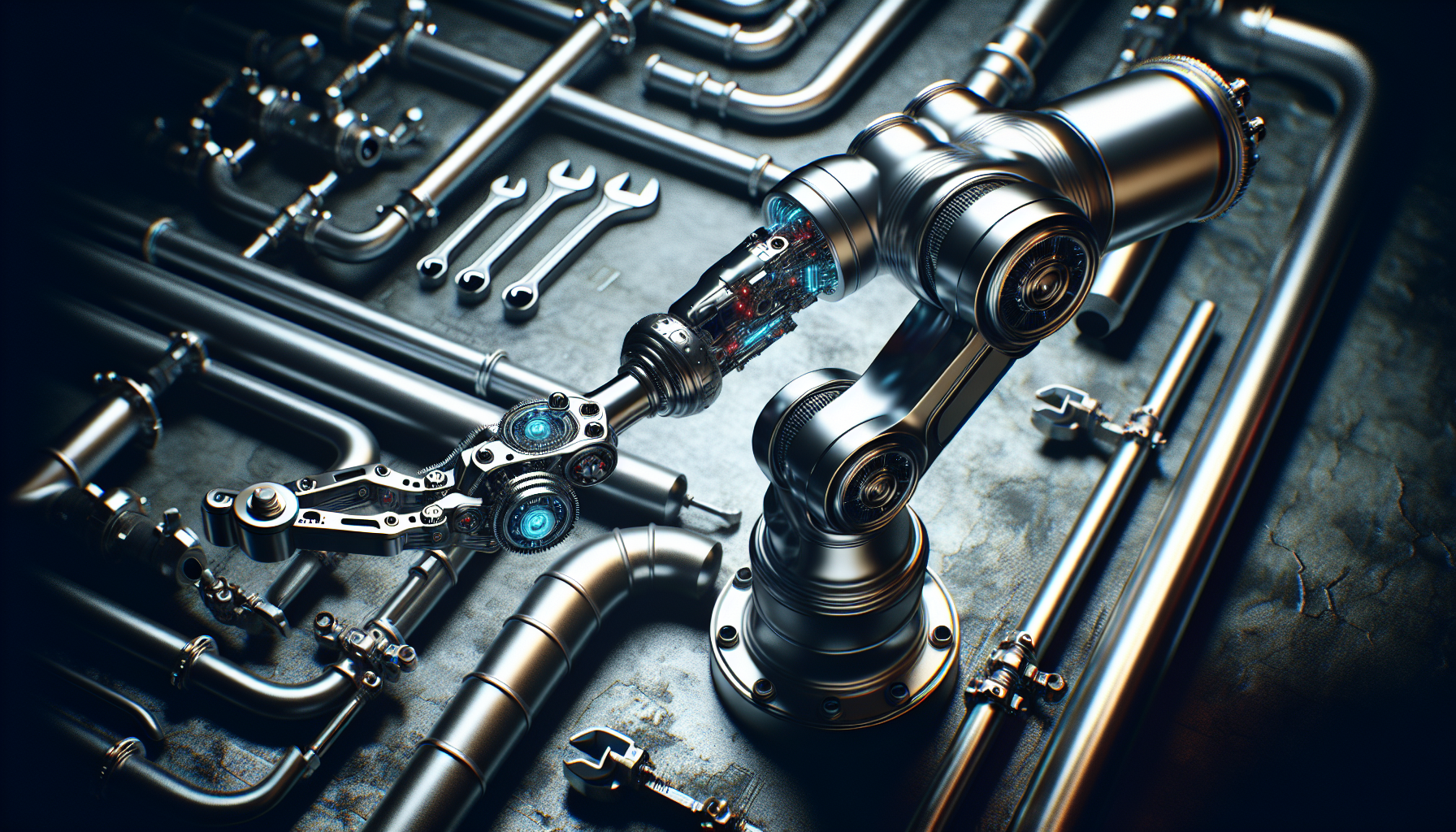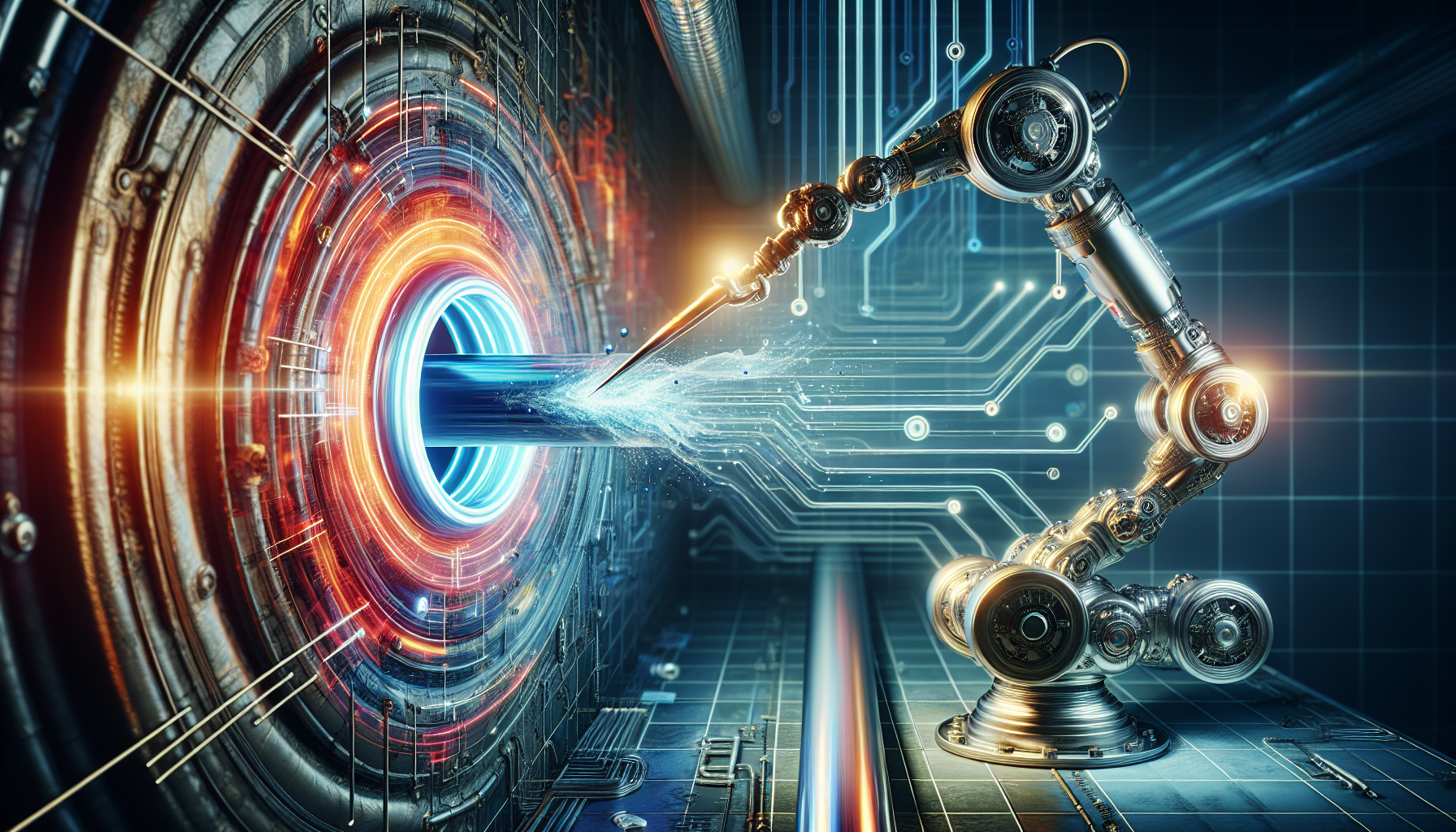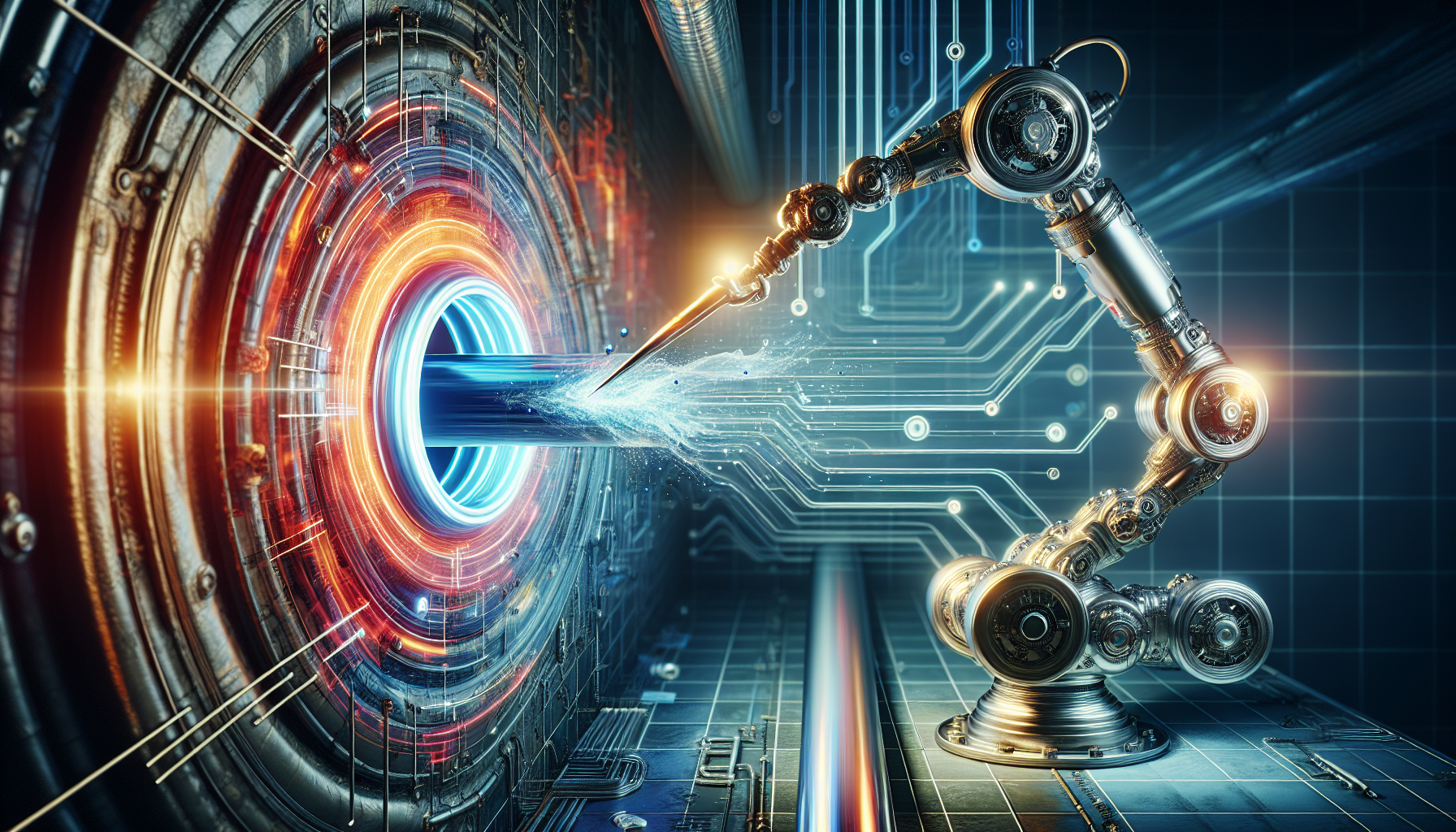In today’s fast-paced world, where technology continues to advance at an astonishing rate, it’s important to explore the various ways in which artificial intelligence (AI) is revolutionizing different industries. One area that might not immediately come to mind is plumbing maintenance. However, AI is now playing an integral role in the field of plumbing, helping to streamline operations, diagnose issues, and even prevent future complications. In this article, we will take a closer look at the exciting ways in which AI is transforming the world of plumbing maintenance.

Benefits of Artificial Intelligence in Plumbing Maintenance
Improved efficiency
Artificial Intelligence (AI) offers numerous benefits to the field of plumbing maintenance. One of the key advantages is improved efficiency. With AI-powered systems, plumbing professionals can automate routine tasks such as data collection, analysis, and monitoring. This enhanced efficiency allows plumbers to save time and focus on more complex and critical issues that require their expertise. By streamlining processes and minimizing manual labor, AI empowers plumbers to work more effectively and deliver services in a timely manner.
Reduced costs
In addition to improved efficiency, AI can significantly reduce costs associated with plumbing maintenance. By harnessing the power of technology, AI systems can detect issues at an early stage, preventing costly damages and repairs. For example, AI-based leak detection systems can identify and locate leaks quickly, saving both time and resources. Moreover, AI can optimize resource allocation and scheduling, reducing unnecessary expenses. By implementing AI in plumbing maintenance, cost savings can be realized in the long term, benefiting both service providers and customers.
Enhanced accessibility
Artificial Intelligence can enhance accessibility in plumbing maintenance. With AI-powered systems, remote monitoring and control become possible. Plumbers can monitor plumbing systems in real-time, even from remote locations, using smart sensors and IoT integration. This enhanced accessibility allows for prompt response to emergencies, proactive monitoring, and faster troubleshooting. Furthermore, AI can provide visualizations and analytics that make it easier for both plumbers and customers to understand the condition of plumbing systems, promoting better communication and decision-making.
Minimized downtime
Another significant advantage of AI in plumbing maintenance is minimized downtime. Plumbing issues can disrupt daily operations and inconvenience both residential and commercial customers. AI-based predictive maintenance systems can help identify potential problems in advance, allowing plumbers to take preventive measures before a major breakdown occurs. By addressing issues proactively, potential downtime can be minimized, ensuring uninterrupted services and customer satisfaction. Through AI-powered solutions, plumbers can maintain the optimal functioning of plumbing systems, reducing the need for emergency repairs and minimizing disruptions.
Applications of Artificial Intelligence in Plumbing Maintenance
Leak detection and prevention
AI plays a crucial role in leak detection and prevention in plumbing maintenance. Traditional methods of finding leaks are often time-consuming and involve significant manual effort. However, with AI-powered systems, leaks can be detected quickly and accurately. Smart sensors integrated into the plumbing infrastructure can continuously monitor water flow and pressure, alerting plumbers to any anomalies that may indicate a leak. By identifying leaks early on, AI can prevent water damage, mold growth, and other costly consequences. This application of AI not only saves time and resources but also promotes water conservation and environmental sustainability.
Predictive maintenance
Predictive maintenance is another valuable application of AI in plumbing maintenance. By analyzing historical data and patterns, AI algorithms can predict potential failures in plumbing systems. This allows plumbers to conduct preventive maintenance before issues escalate, minimizing downtime and reducing repair costs. Predictive maintenance also enables the scheduling of maintenance activities at optimal times, avoiding disruption to customers. Through AI-powered systems, plumbing professionals can take a proactive approach to maintenance, ensuring the longevity and reliability of plumbing systems.
Real-time monitoring
Real-time monitoring is essential in plumbing maintenance, and AI enables this capability. By integrating smart sensors and IoT technology, AI systems can continuously monitor various parameters, such as water pressure, temperature, and flow rate. Plumbers can access real-time data and visualize the condition of plumbing systems remotely. This real-time monitoring allows for prompt identification of anomalies or deviations from normal operation. Any abnormal readings can trigger automated alerts and notifications, enabling quick response and preventive action. Real-time monitoring empowers plumbers to detect and address issues proactively, maintaining the integrity of plumbing systems.
Quality control
AI also contributes to quality control in plumbing maintenance. From the manufacturing phase to installation and maintenance, AI can help ensure that plumbing systems meet the highest standards. Through AI-powered inspections and quality checks, both manufacturers and plumbers can identify potential defects or deviations from specifications. AI algorithms can analyze data and detect any anomalies or non-conformities, enabling timely corrective actions. This focus on quality control enhances the overall reliability and performance of plumbing systems, leading to improved customer satisfaction and long-term durability.

Use of Machine Learning in Plumbing Maintenance
Data analysis and pattern recognition
One of the key applications of Machine Learning (ML) in plumbing maintenance is data analysis and pattern recognition. By analyzing large volumes of data, ML algorithms can identify patterns and correlations that may not be apparent to human observers. In plumbing maintenance, ML can analyze historical data regarding water usage, pressure variations, and maintenance records to identify trends or anomalies. This analysis can provide valuable insights into the behavior of plumbing systems, helping plumbers make informed decisions regarding maintenance and repairs. By leveraging ML, plumbers can improve their understanding of plumbing system performance and optimize maintenance strategies.
Algorithmic optimization
ML can also optimize algorithms used in plumbing maintenance. Optimization algorithms aim to find the best solution to a given problem under specific constraints. In plumbing maintenance, these algorithms can be used to optimize resource allocation, scheduling, and other operational tasks. ML algorithms can analyze historical data, customer preferences, and other relevant factors to derive optimal solutions. For example, ML can determine the most efficient routes for plumbers to reach different locations during maintenance rounds. By automating algorithmic optimization, plumb

